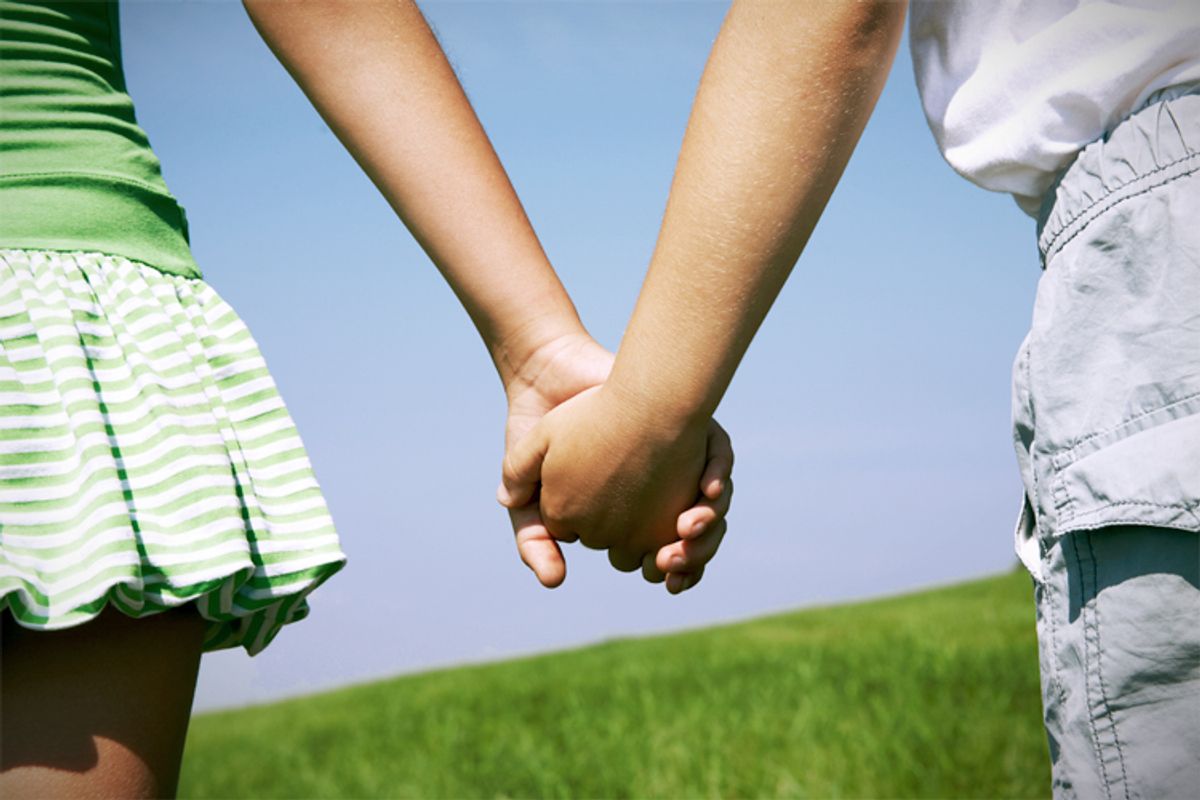Kids these days, with their "sex" bracelets and rainbow parties! Back in my middle school days, we went on chaperoned dates to watch movies like "Space Jam" and avoided touching at all costs. Now 11-year-olds are staging orgies in their parents' basements and live-streaming it online. Am I right or am I right?
Actually, no. According to a new study published in the May issue of the journal Pediatrics, adolescents are having less sex than you think. The study's lead author, Lawrence Finer, says, "Policymakers and the media often sensationalize teen sexual behavior, suggesting that adolescents as young as 10 or 11 are increasingly sexually active. But the data just don't support that concern," he said. "Rather, we are seeing teens waiting longer to have sex, using contraceptives more frequently when they start having sex, and being less likely to become pregnant than their peers of past decades."
Go ahead and reread that paragraph above. Let it sink in. Teens are waiting longer to have sex than you and your peers did at their age. They're also more likely to use contraception and less likely to get pregnant than previous generations. In other words: Kids these days are doing it (or not doing it) better than you did.
To the numbers: The percentage of adolescents who have had sex is very low (0.6 percent of 10-year-olds, 1.1 percent of 11-year-olds and 2.4 percent of 12-year-olds). As has long been the case, "a low level of sexual activity among young adolescents" is the current norm, according to a press release by the Guttmacher Institute. As for sexually active older teens, the study found that they make up 33 percent of 16-year-olds, 48 percent of 17-year-olds and 61 percent of 18-year-olds. Just to put that into perspective, the press release explains that "the likelihood of sexual activity at any given age is lower than at any time in the past 25 years."
Now, that isn't to say there isn't anything to worry about here. Of the small percentage of young adolescents who did report being sexually active, many were unwillingly: 63 percent of girls who had sex by age 10 said the first time was coerced. So things are perhaps better than we often assume, but that doesn't mean there isn't plenty of work to be done. The study concluded, "Health professionals can improve outcomes for teenagers by recognizing the higher likelihood of nonconsensual sex among younger teens and by teaching and making contraceptive methods available to teen patients before they become sexually active." Another way to put that: Talk more, worry less.



Shares